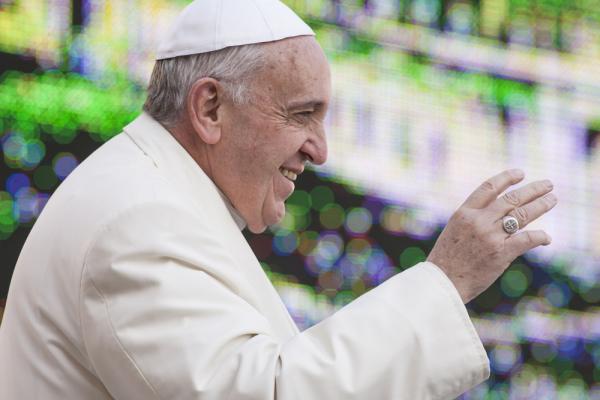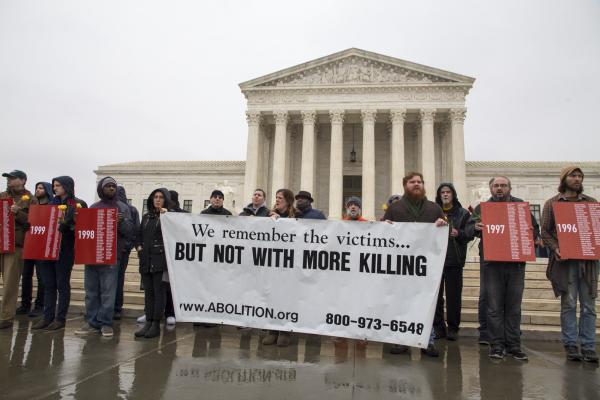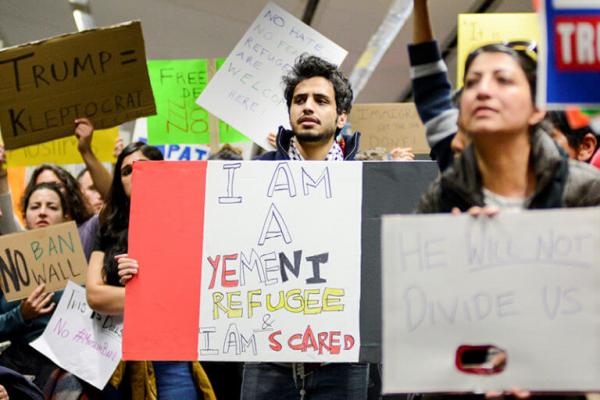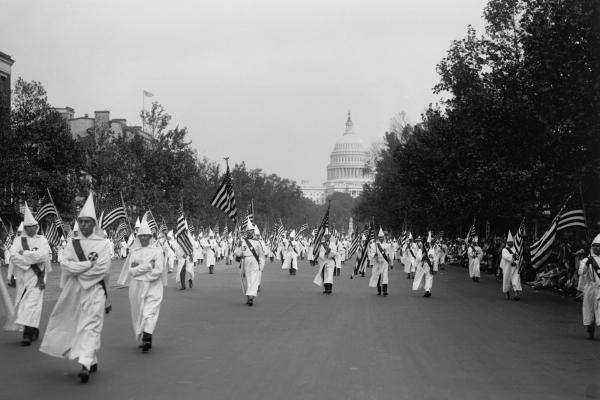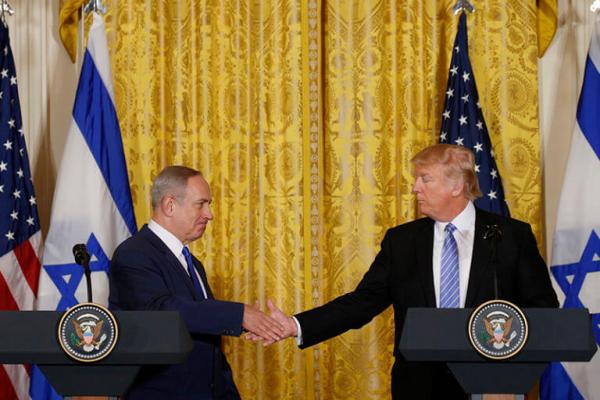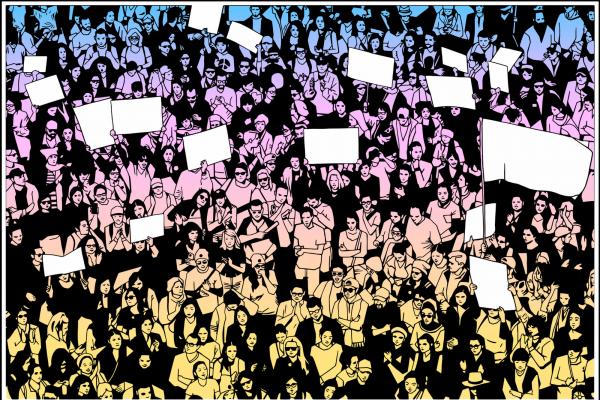One year ago, Pope Francis visited the Mexican-U.S. border and prayed for migrants who have lost their lives seeking refuge in our country. His prayer transcended the dusty fences and united two countries in a silent cry for mercy on behalf of our brothers and sisters who died on their journey.
1. The Lasting Trauma of Japanese American Incarceration
Sunday marks 75 years since the signing of Executive Order 9066, which led to the mass incarceration of tens of thousands of Japanese Americans. A look back, and lessons for today.
2. The Ancient City ISIS Is Destroying, Preserved Online
A new digital exhibition, “The Legacy of Ancient Palmyra,” features prints and photographs from the pre-Islamic metropolis.
3. Trump Says He Wants to Prioritize Christian Refugees. Middle Eastern Christians in the U.S. Respond.
The reaction to Trump’s statements among Assyrians living in the U.S. is far from uniform.
We resisted — and we still face the possibility of jail time, fines, and community service. Here are a few of the lessons I’ve learned planning events like this one over the years. I hope you can use them as you continue to resist unjust policies.
Despite President Trump’s threat of a “Muslim ban” during the 2016 campaign, Hadil Mansoor Al-Mowafak, a 20-year-old international affairs student at Stanford University, was taken aback when he banned travel from seven Muslim countries, including Yemen, where her husband lives.
“I didn’t think it was even possible,” Al-Mowafak said. “I thought he just used the Muslim ban during his campaign, and once he took power he’d face reality.”
On Feb. 19, 1942, President Franklin D. Roosevelt empowered military commanders to execute the “forced evacuation” of anyone with Japanese ancestry from the West Coast of the United States. This order set in motion a mass incarceration that would sweep tens of thousands of people, most of them American citizens, into concentration camps throughout the country’s inland regions.
Cherian George: "One of the bitter ironies is that the extreme right the world around, although they may detest each other, are remarkably similar in the way they operate and in their world views. They believe in a certain purity of identity. They often use similar tactics."
The first time I saw Amy León, she was standing in a church that was about to explode. Or had already exploded — I couldn’t tell. I was watching the music video for her song “Burning in Birmingham,” a reenactment of the 16th Street Baptist Church bombing that took the lives of four black girls on Sept. 15, 1963 in Birmingham, Ala.
The only answer to the racial divide among Christians — evangelicals in particular — is to go much deeper into what racial equity and healing will require. America’s Original Sin was written for such a time as this. It is a book written to and for white Christians and white churches — to help lead them to new conversations with black and brown Christians and their churches. It could be that studying racism in congregation after congregation, and especially between congregations across racial lines, could be a fundamental building block for genuine racial reconciliation in America.
The reporter asked President Trump about the rise of anti-Semitism in America. His answer — or seeming lack of one — angered many prominent Jewish Americans.
“Donald Trump’s inability to simply condemn antisemitism boggles the mind,” said Stosh Cotler, CEO of Bend the Arc Jewish Action.
In the wake of executive orders from the Trump administration targeting Muslims, leaders of faith and moral courage gathered to cultivate resistance. In this moment, resistance means providing sanctuary for undocumented citizens, rejecting policies that restrict human flourishing, and calling one another to moral citizenship in the face of immoral and unjust policies. Moral citizens, according to ISAIAH executive director Doran Schrantz, fight “for the moral and political truth that the promise of our democracy is imperiled unless all are human, all are citizens, all are free.”
